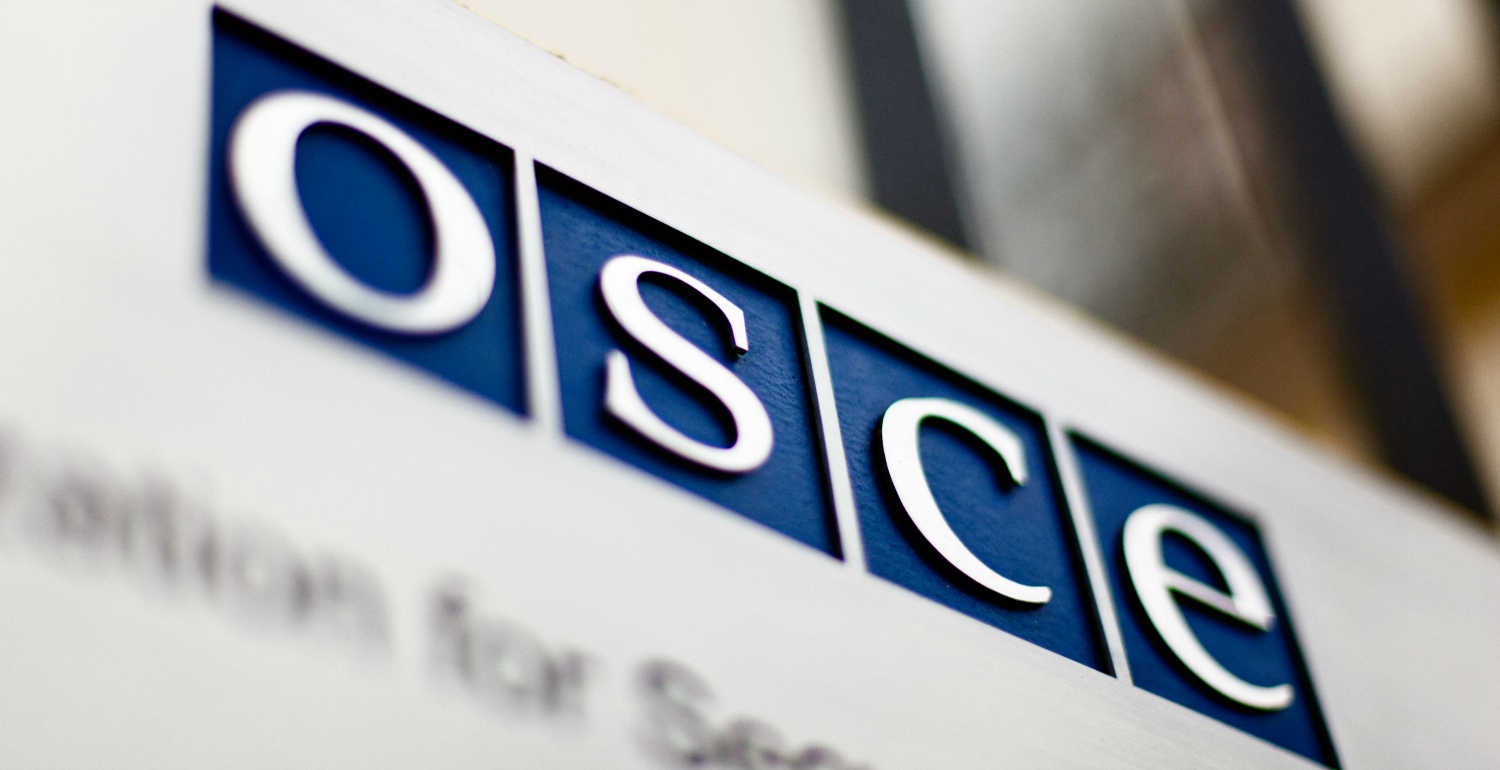Helsinki Commission staff regularly issue public reports concerning implementation of OSCE commitments in participating States, election observation, and more.
RELATED CONTENT
The Consensus Rule
Oct 05, 2020The OSCE operates using a consensus decision-making process. Consensus fosters ownership of decisions by all OSCE participating States, enables them to protect key national priorities, and creates an important incentive for countries to participate in the OSCE. It also strengthens the politically binding nature of OSCE commitments; participating States cannot claim that they did not […]
Human Rights and Democracy in a Time of Pandemic
May 12, 2020The outbreak of the novel coronavirus pandemic has prompted governments around the world to take extraordinary measures in the interest of public health and safety. As of early April, nearly two-thirds of the 57 participating States of the Organization for Security and Cooperation in Europe had declared “states of emergency” or invoked similar legal measures […]
Restrictions on Civil Society in Hungary
Feb 28, 2020Since returning to power in 2010, Viktor Orban has systematically dismantled a system of checks and balances, facilitating the consolidation of control by the Fidesz government, which is now in its fourth (third consecutive) term. This has included introducing significant changes to the legal framework for parliamentary elections; stripping hundreds of faiths of their state […]
The Helsinki Process: A Four Decade Overview
Jun 28, 2019In August 1975, the heads of state or government of 35 countries – the Soviet Union and all of Europe except Albania, plus the United States and Canada – held a historic summit in Helsinki, Finland, where they signed the Final Act of the Conference on Security and Cooperation in Europe. This document is known […]

Conference on Security and Cooperation in Europe and...
Jun 24, 2019The 57 participating States of the Organization for Security and Cooperation in Europe have repeatedly committed to recognizing and respecting freedom of religion or belief. The 35 participating States of the Conference on Security and Cooperation in Europe–the forerunner of the OSCE–signed the Helsinki Final Act of 1975, which included: “The participating States will recognize […]
The Holy See and Religious Freedom
Dec 20, 2018Because of its unique status as the universal government of a specific religion, rather than a territorial state, the Holy See is probably the least understood of the 57 participating States of the Organization for Security and Cooperation in Europe. However, it has a rich diplomatic history and has contributed significantly to the development of […]
What’s Next in Putin’s Crosshairs?
Oct 18, 2018Since 1999, Vladimir Putin has led a Russian government that tramples on human rights and international norms. His government increasingly restricts freedom of the press and censorship is pervasive, especially for opinions critical of the government. Putin and his cronies are linked to murders of numerous political dissenters and journalists. Russian authorities persecute religious minorities […]
Incorporation Transparency
Oct 04, 2018“Steal in Russia and spend in the West” is how Kremlin critic Vladimir Kara-Murza describes the behavior of Russian President Vladimir Putin and his associates. A similar principle has become commonplace in most authoritarian regimes. Countries in which the rule of law is strong find themselves at risk from ill-gotten gains that autocrats have hidden […]
The Russian Occupation of South Ossetia and Abkhazia
Jul 16, 2018August 2018 marks 10 years of Russian occupation of approximately 20 percent of Georgia’s internationally recognized sovereign territory. The Russian occupation, and the ensuing recognition by Moscow of the “independence” of South Ossetia (referred to in Georgia as the Tskhinvali region) and Abkhazia, represent material breaches of international law and an active disregard for the […]
The OSCE and Roma
Jul 13, 2018Roma are the largest ethnic minority in Europe and are present in most of the participating States of the Organization for Security and Cooperation in Europe. Concentrated in post-communist Central and Southern Europe, the Romani population is estimated at over 12 million in EU countries, with significant numbers in former Soviet republics, the Balkans, and […]
2018 World Cup: The Beautiful Game and an Ugly Regime
May 31, 2018The 2018 World Cup hosted by Russia has created an unprecedented opportunity for the country’s kleptocrats to enrich themselves. Just as he did with the 2014 Winter Olympics in Sochi, President Vladimir Putin has hijacked a world sporting event in an attempt to burnish his own image and enrich the Kremlin elite, rather than to […]
Sanctioning Human Rights Abusers and Kleptocrats und...
May 24, 2018The Global Magnitsky Act enables the United States to sanction the world’s worst human rights abusers and most corrupt oligarchs and foreign officials, freezing their U.S. assets and preventing them from traveling to the United States. Sanctioned individuals become financial pariahs and the international financial system wants nothing to do with them. Before proceeding, ask […]
